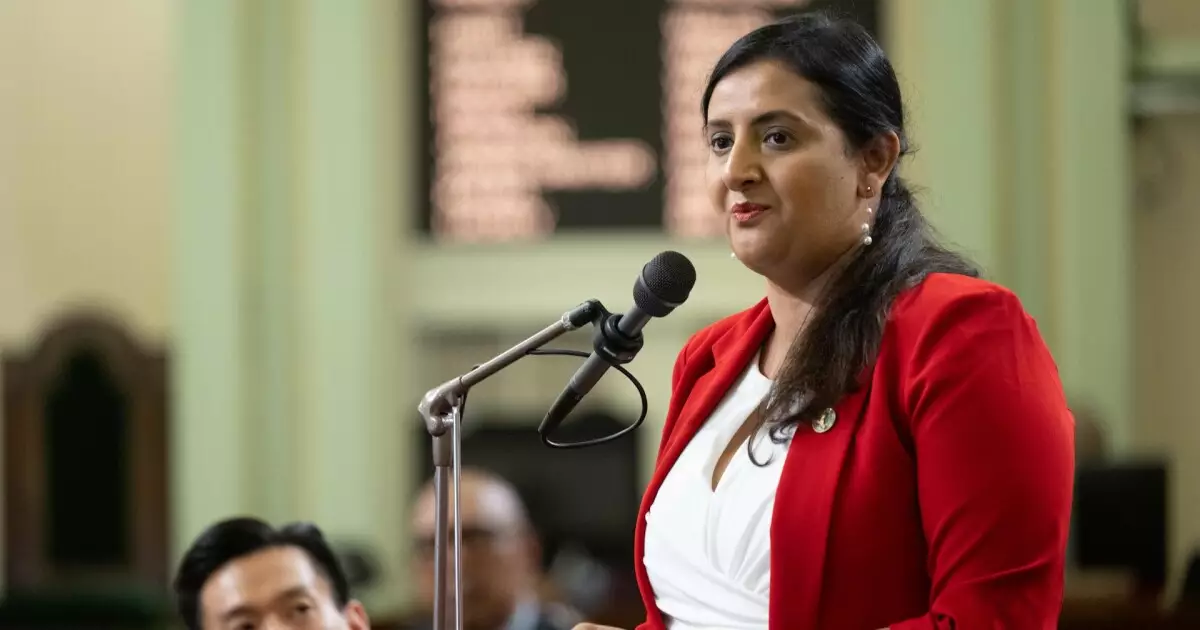In a move that has ignited fierce debate across the political landscape, California Governor Gavin Newsom recently signed Assembly Bill 100, a supplemental budget bill allocating an eye-popping $2.8 billion to fund higher-than-expected costs associated with the state’s Medi-Cal program. While health care for the less fortunate is undeniably important, this expansion raises serious questions about fiscal responsibility and prioritization in governance. The inclusion of undocumented immigrants as beneficiaries of Medi-Cal is where the broad strokes of this bill paint a deeper, more troubling picture.
Critics, particularly from the Republican faction, argue that the focus on covering undocumented immigrants undermines the integrity of a program designed for the most vulnerable citizens of California. Assemblymember Carl DeMaio, among others, articulated a case charged with concern over unintended consequences, asserting that the original projections for this coverage have already ballooned. What was proposed as a $6.5 billion investment has skyrocketed to a staggering $9.5 billion. This financial mismanagement sets an alarming precedent, suggesting that fiscal planning may be treated as a mere formality rather than a crucial cornerstone of effective governance.
A Red Flag for Healthcare Costs
Democratic leaders, however, counter with impassioned pleas about the necessity of comprehensive health care. Assemblymember Jasmeet Bains, a physician by profession, claimed that denying health care to undocumented immigrants only leads to higher costs down the line, as untreated individuals may ultimately seek emergency care for conditions that could have been managed more effectively at preventive stages. This rhetoric, while well-intentioned, overlooks the immediate fiscal impacts on taxpayers and seems tone-deaf to those who are concerned about escalating costs.
Under pinning these arguments is the undeniable fact that general fund spending on Medi-Cal has nearly doubled in a mere six years, now reaching $42.1 billion. Advocates for the plan argue that expanding Medi-Cal leads to better health outcomes; yet, they fail to address the sustainability of such an expansion. When does an empathetic approach to health care become reckless financial management?
Concerns on Accountability
DeMaio’s call for an audit of the Medi-Cal program strikes at the heart of the issue of accountability within state governance. It raises a significant query about the oversight mechanisms in place. Is there a structured way to measure the outcome of these expenditures, or are we blindly trusting that all will turn out favorably? The lack of transparency in how funds are allocated and the escalating costs raise questions that cannot be ignored.
The sharp rise in total spending on Medi-Cal, climbing to $188.1 billion, begs a critical examination of the underlying factors driving these costs. Was the expansion of benefits to include undocumented immigrants simply a political maneuver, or is there genuine concern for the health of all Californians? Legislators must reckon with the potential fallout from such decisions as they simultaneously balance the needs of the state’s taxpaying citizens.
Emotion vs. Economic Realities
An emotional appeal can often overshadow the cold hard facts of economics, and in this case, we see that sentiment taking center stage. Lawmakers supporting the bill, like Sade Elhawary, have taken a staunch stance against criticisms, emphasizing access to care for all. While this humanitarian perspective is laudable, it clashes alarmingly with financial prudence. The stark reality is that in a state where homelessness continues to rise and basic services are increasingly strained, unaffordable and expansive programs risk diverting essential resources away from pressing issues.
It’s essential to acknowledge the moral complexities surrounding health care access for every individual, regardless of immigration status; however, this focus must not dismiss financial stewardship as a priority. California’s growing burden of debt and deficit will ultimately haunt future generations and stymie potential growth opportunities.
As the dust settles from the passage of AB 100, Californians must ask themselves: at what point does compassion end and fiscal irresponsibility begin? Balancing empathy with economic viability is a tightrope act that demands careful consideration. Only through a clear-eyed analysis of the potential repercussions can California move forward without compromising its future.

